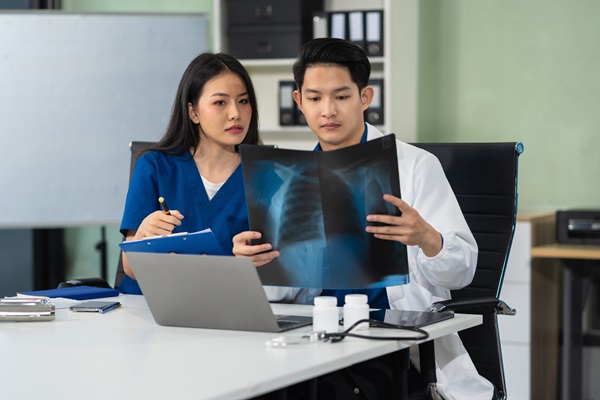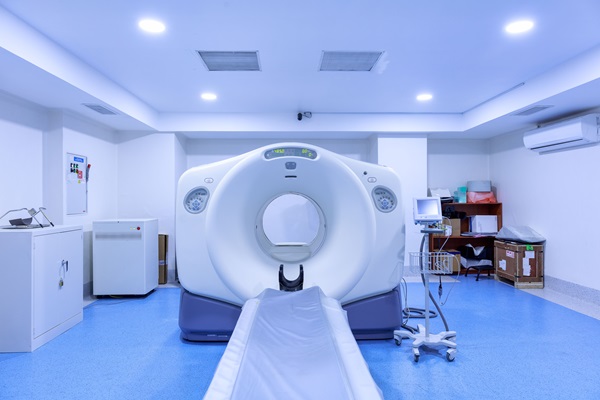Why Immunization Matters: Protecting Your Health and Preventing Disease

Immunizations, or vaccines, protect public health and prevent the spread of infectious diseases. By helping the body develop immunity to harmful pathogens, immunization reduces the risk of illness, hospitalization, and, in some cases, death. Still, some may not know the true significance of immunizations. Therefore, understanding the importance of immunization and keeping up with recommended vaccines is essential for maintaining good health and preventing the resurgence and spread of preventable diseases.
How immunization works
According to the Centers for Disease Control and Prevention (CDC), immunization works by replicating a weakened or inactivated version of a specific infection's pathogen or part of it. This exposure allows the body's immune system to recognize and respond to the pathogen without making the individual ill. Within every immunization is an active ingredient called antigen, which produces antibodies in the body. Antibodies are proteins that target and neutralize a pathogen if the body encounters it in the future.
Immunizations prevent serious illness
One of the most important reasons immunization matters is its ability to prevent serious, life-threatening illnesses. Diseases such as measles, diphtheria, and tetanus can lead to severe complications, including brain damage, organ failure, and even death. Vaccines provide a safe and effective way to protect against these dangers, significantly reducing the burden of disease on individuals and healthcare systems.
Additionally, immunization also plays a key role in preventing the spread of infections within individuals' immediate communities. When a large percentage of the population is vaccinated, it creates a buffer that protects those who cannot be fully vaccinated, such as infants, the elderly, and individuals with weakened immune systems. This is especially important for people who are more vulnerable to infections and cannot fight off diseases as effectively as others.
The role of immunization in global health
In addition to protecting one's person, immunization extends to others globally. In fact, due to its benefits, it can be considered a cornerstone of global health. Immunizations have helped to control or eliminate several infectious diseases that once devastated populations. For example, according to the CDC, smallpox, a disease that killed millions, was declared eradicated by the World Health Assembly in 1980 due to a successful global vaccination campaign. Similarly, polio has been eliminated from most of the world, with few countries still reporting cases.
Immunization efforts continue to prove essential in combating diseases that still pose a threat to global health, such as tuberculosis, hepatitis, and influenza. In many low—and middle-income countries, vaccines save many lives by preventing diseases that might otherwise lead to widespread illness and death. As medical researchers and scientists develop and distribute new vaccines, the potential for further disease prevention and improved global health continues to grow.
Addressing immunization hesitancy
Even though many know the benefits and importance of immunization, some may still be hesitant to receive it or maintain the schedule their primary care provider and government health organizations recommend. Further, some communities may find it difficult to access immunizations or have knowledge of what they need. That is why it is important to partner with a primary care provider so that they cannot only provide the appropriate immunizations but also education that pertains specifically to the patient and community.
Unfortunately, another part of immunization hesitancy lies in misinformation that can spread faster than the truth. According to the CDC, every vaccine available to the general public undergoes rigorous testing to ensure its safety and efficacy before being approved. If side effects occur, they are typically mild and short-lived, such as soreness at the injection site or a low-grade fever. Serious side effects are extremely rare, and the risk of complications from a vaccine is far lower than that of the diseases they prevent.
The necessity of immunizations throughout life
Immunization is not only meant for young children. Adults also need vaccines to protect themselves from illness. As people age, their immune systems naturally weaken, making them more susceptible to infections. Vaccines such as the flu shot, shingles vaccine, and pneumococcal vaccine are important for protecting older adults from serious health complications throughout the year.
Moreover, some vaccines require booster shots to maintain immunity over time. For example, the diphtheria, tetanus, and pertussis vaccines (DTaP, Tdap) should be updated every 10 years to ensure ongoing protection. Primary care providers can work with patients to ensure they are up to date on their vaccinations and understand which vaccines are recommended based on their age, health status, and travel plans.
Protect yourself and your community
Immunization is one of the most effective ways to protect against preventable diseases and promote long-term health. Remember, while they benefit you, they also help protect everyone else. To ensure you are up-to-date on your immunizations or to receive a specific immunization, contact our New Caney office.
Request an appointment here: https://tx-urgentcare.com or call Texas Urgent Care & Imaging Center at (832) 941-1894 for an appointment in our New Caney office.
Check out what others are saying about our services on Yelp: Immunizations in New Caney, TX.
Recent Posts
X-rays are popular tools medical professionals use to diagnose a wide range of health conditions quickly and safely. They allow these professionals to see inside the body without invasive procedures, making them invaluable in urgent and primary care settings. Whether identifying fractures, monitoring chronic conditions, or detecting abnormalities, X-rays are critical in ensuring timely and…
A CT scan, or computed tomography scan, is a diagnostic tool that provides detailed images of the body’s internal structures. This non-invasive procedure helps medical professionals diagnose and monitor various conditions, from injuries to chronic illnesses. Knowing what to expect during a CT scan can ease concerns and prepare patients for a smooth experience.A CT…
If you work in public transportation, you may need to have a DOT drug screening. The Department of Transportation (DOT) regulates this test and requires it for you. You might be wondering what this test is like. Keep reading to learn more.Congress passed the Omnibus Transportation Employee Testing Act in 1991. Congress knew that the…
Walk-in clinic provide convenient, accessible health care for non-emergency medical needs, making it an ideal choice when immediate attention is necessary. Understanding when to visit a clinic can help patients save time, avoid unnecessary trips to the emergency room, and receive quality care for their health concerns. These clinics handle various issues, offering fast, professional…


